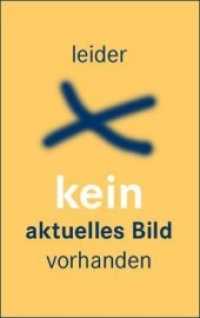Full Description
With the growing influence of discursive and narrative perspectives on organizing, organizational scholars are focusing increasing attention on the constitutive role that language and communication play in organizational processes. This view conceptualizes language and communication as bringing organization into being in every instant and is therefore inherently sympathetic to a process perspective. However, our understanding of the role of language in unfolding organizational processes and as a part of organizational action is still limited. This volume brings together empirical and/or conceptual contributions from leading scholars in organization and communication to develop understanding of language and communication as constitutive of work, and also analyze how language and communication actually work to achieve influence in the context of organizations.
It aims to elucidate the role language, communication, and narrativity play as part of strategic and institutional work in and around organizational phenomena. In keeping with the preceding volumes in the Perspectives on Process Organization Studies series, this collection demonstrates why we need to start thinking processually and offers a range of theoretical and methodological approaches to studying these 'works in process' that we call organizations, companies, businesses, institutions, communities, associations, or NGOs
Contents
PART I: LANGUAGE AND COMMUNICATION IN ORGANIZATIONS; PART II: PROCESS PERSPECTIVES








